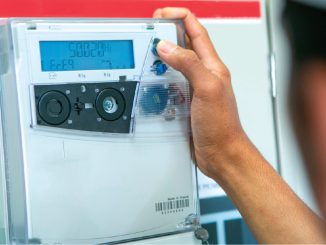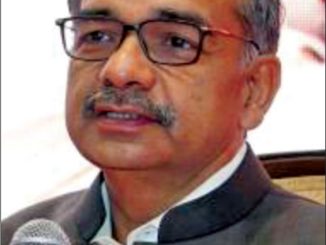 Smart meters are becoming increasingly prominent in the power distribution segment owing to their ability to improve the operational and financial performance of utilities. In February 2023, the total number of smart meter installations in the country crossed 7.2 million. Government schemes and programmes, especially the Ministry of Power’s (MoP) Revamped Distribution Sector Scheme (RDSS), have given a significant impetus to the deployment of smart meters in the country. These programmes provide power departments and discoms greater access to funding for prepaid smart metering, distribution infrastructure upgrades, and system-wide metering for modernisation and loss reduction. According to a Lok Sabha question/answer from August 10, 2023, 205.32 million consumer meters, 5.41 million distribution transformer meters and 201,695 feeder meters have been sanctioned under the RDSS, at a total sanctioned cost of about Rs 1.35 trillion.
Smart meters are becoming increasingly prominent in the power distribution segment owing to their ability to improve the operational and financial performance of utilities. In February 2023, the total number of smart meter installations in the country crossed 7.2 million. Government schemes and programmes, especially the Ministry of Power’s (MoP) Revamped Distribution Sector Scheme (RDSS), have given a significant impetus to the deployment of smart meters in the country. These programmes provide power departments and discoms greater access to funding for prepaid smart metering, distribution infrastructure upgrades, and system-wide metering for modernisation and loss reduction. According to a Lok Sabha question/answer from August 10, 2023, 205.32 million consumer meters, 5.41 million distribution transformer meters and 201,695 feeder meters have been sanctioned under the RDSS, at a total sanctioned cost of about Rs 1.35 trillion.
Power Line takes a look at the status of the RDSS and NSGM…
Smart metering initiatives under RDSS
Launched in 2022, the MoP’s flagship RDSS initiative aims to improve the operational efficiency and financial sustainability of discoms. With an outlay of Rs 3,037.58 billion for a period of five years (2021-22 to 2025-26), the scheme aims to provide financial assistance to discoms for the modernisation and strengthening of distribution infrastructure, as well as for improvements in reliability and quality of supply to end-consumers. The main objectives of the RDSS are to reduce aggregate technical and commercial losses to 12-15 per cent, reduce the average cost of supply-average revenue realised gap to zero by financial year 2024-25, and improve the quality, reliability and affordability of power supply to consumers by creating a financially sustainable and operationally efficient distribution sector. The scheme incorporates all current projects sanctioned under programmes such as the Integrated Power the Development Scheme, the Deendayal Upadhyaya Gram Jyoti Yojana and the Prime Minister’s Development Package 2015.
The RDSS is divided into two key components: Part A, which aims to provide financial support for prepaid smart metering, system metering and distribution infrastructure upgrades; and Part B, focused on training, capacity building, and other enabling and supporting activities. The sanctioned outlay for smart metering amounts to approximately Rs 1,349.86 billion, while for loss reduction works it is Rs 1,191.34 billion.
Under the scheme, prepaid smart metering is a critical intervention, envisaged with an estimated outlay of around Rs 1,500 billion, gross budgetary support of about 230 billion, and the aim of installing 250 million prepaid smart meters during the scheme period. System metering at the feeder and distribution transformer levels with communication features and associated advanced metering infrastructure will also be implemented, thereby facilitating automatic measurement of energy flows at all levels for energy accounting and auditing without any human interference.
The roll-out of smart meters will be done via public-private partnerships in totex mode, so that the service-level agreements can be enforced for proper energy accounting, in turn facilitating the identification of defaulting consumers and instances of meter tampering. Under the totex mode, it is expected that discoms will be able to finance monthly costs with the enhanced revenue as a result of improvement in billing and collection due to prepaid metering.
Under the scheme, advanced information and communication technologies such as artificial intelligence/machine learning will be leveraged to analyse data generated through smart meters and information technology/operational technology devices, including system meters, to detect theft and prepare actionable MIS from system-generated energy accounting reports, enabling discoms to take informed decisions on power theft along with loss reduction, demand forecasting, asset management, etc.
 Metering progress under NSGM
Metering progress under NSGM
Under the National Smart Grid Mission (NSGM), as of now, 168,744 smart meters have been installed, out of the 178,522 sanctioned. Currently, two projects worth Rs 1,160.1 million are being implemented under the NSGM. These include two in Chandigarh (Subdivision 5), and one integrated project across six towns in Rajasthan. Of the total 168,744 smart meters, 24,214 have been installed by the Chandigarh Electricity Department in Subdivision 5; while Jaipur Vidyut Vitran Nigam Limited has installed 144,530 to cater to 0.15 million consumers. The project entails the deployment of smart meters, automated metering infrastructure, distribution transformer monitoring units and supervisory control and data acquisition systems.
Conclusion
Distribution utilities are revamping their metering infrastructure on a large scale with the adoption of smart meters to improve their operational and financial performance. In 2023-24 (as of April-October 2023), about 1.63 million smart meters have been installed. Going forward, smart meter installation is expected to gain further momentum on the back of the MoP’s RDSS initiative, which envisages the deployment of 250 million smart prepaid meters for all domestic consumers by March 2025.



